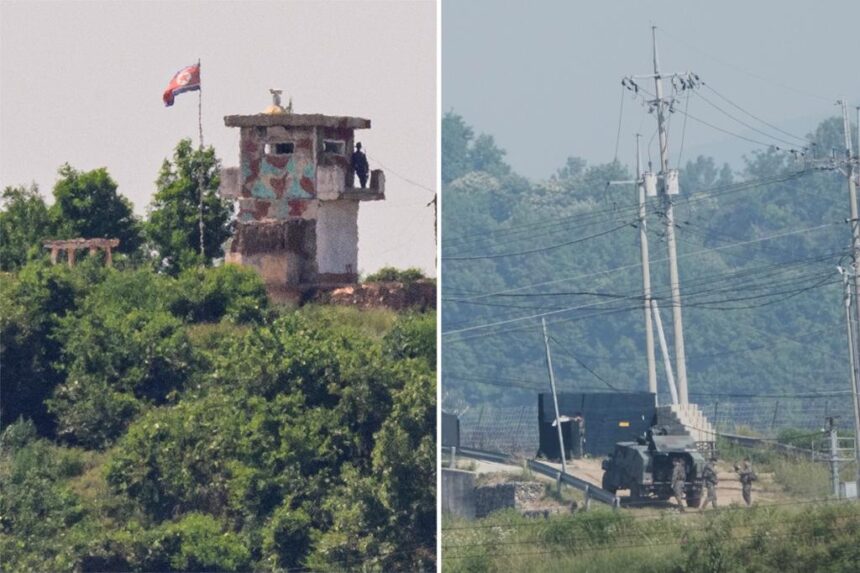An unidentified North Korean man made a daring crossover into South Korean territory, sparking intrigue and speculation about his intentions. The South Korean military revealed that they apprehended the individual near the central-west section of the heavily fortified border. They conducted a “guiding operation” before safely taking the person into custody on Thursday night.
Authorities are now gearing up to launch a thorough investigation into the border crossing incident. The motive behind the man’s actions remains unclear, leaving room for speculation on whether it was a defection attempt or a different kind of maneuver.
The South’s Joint Chiefs promptly informed the U.S.-led United Nations Command about the unfolding situation. Despite the tense nature of the border, no immediate signs of unusual military activity from the North were detected following the incident.
A South Korean military unit approached the unarmed North Korean man upon spotting him and successfully guided him out of the treacherous mine-laden Demilitarized Zone. The safe handling of the situation reflects the professionalism and vigilance of the South Korean troops stationed along the border.
Tensions between the two Koreas have been simmering in recent months, with both sides engaging in a form of psychological warfare reminiscent of the Cold War era. North Korea’s provocative act of sending trash-filled balloons across the border was met with South Korea’s retaliatory measure of broadcasting anti-Pyongyang propaganda through loudspeakers.
President Lee Jae Myung, who assumed office recently, has taken steps to foster trust with North Korea by halting frontline loudspeaker broadcasts and moving to ban activists from flying propaganda-laden balloons across the border. These conciliatory gestures signal a shift towards diplomacy and peace-building in the region.
Instances of border breaches are not unprecedented, as evidenced by a similar incident in April where South Korean troops fired warning shots at North Korean soldiers who briefly crossed the military demarcation line. The soldiers retreated without incident, underscoring the delicate balance of power along the border.
In June last year, North Korean troops crossed the border multiple times, prompting South Korea to respond with warning shots. Experts suggest that these crossings may have been accidental, occurring amidst heightened tensions and border defense activities by North Korean troops.
The breakdown of denuclearization talks between Washington and Pyongyang in 2019 has strained diplomatic relations between the two Koreas. North Korean leader Kim Jong Un’s aggressive stance on expanding the country’s nuclear program has raised concerns of potential nuclear conflict with the U.S. and South Korea.
South Korea’s previous conservative government responded to these threats by bolstering military exercises with allies like the United States and Japan. However, such actions were met with criticism from North Korea, who viewed them as provocative and escalatory.
In conclusion, the recent border crossing incident serves as a stark reminder of the fragile peace on the Korean Peninsula. As tensions ebb and flow, diplomatic efforts and strategic communication are crucial in preventing further escalations and fostering a peaceful resolution to longstanding conflicts.








